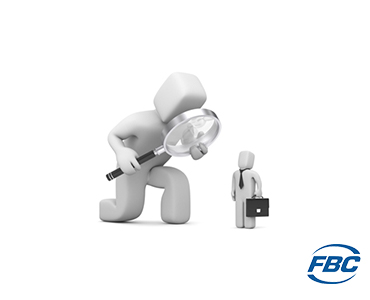Contents
Last updated: Jun. 14, 2017
5 Risk Factors That Can Cause a CRA Audit
The 2016 tax season may officially be over and your tax refund may already have been deposited into the bank, but the Canada Revenue Agency (CRA) is only just getting started.
If you happen to be one of the millions of Canadians who filed their taxes online, you probably received your tax refund in just a matter of days.
But the CRA pays the refund based on what you filed; they can, and often do, go back and take a closer look. The CRA doesn’t report how many tax returns it revisits each year.
Sometimes a tax return is chosen randomly by the CRA; other times, the CRA will revisit a tax return because it needs more information.
It’s not uncommon for the CRA to ask for additional information. That’s because tax refunds filed electronically are not accompanied by any receipts.
You might be on your summer vacation in August, spending your tax return, when you receive a letter from the CRA asking to see proof of Registered Retirement Savings Plan (RRSP) contributions, child-care expenses, or charitable donations.
At other times, there may be triggers that cause the CRA to take a deeper look at your receipts and T-slips and see whether they match up to what you put on your tax return.
Below are 5 factors that can trigger CRA audits.
1. Self-Employment
More than 15% (2.78 million) of Canadians are self-employed. That’s a big portion of the tax-paying population that is responsible for reporting their own income and expenses.
The CRA knows that it’s not uncommon for those who are self-employed to over-report expenses and under-report income.
If you have a job where cash can easily change hands and there are limited records of transactions, like in agriculture, construction, retail, and the restaurant business, your chances of being flagged by the CRA are going to be greater.
The CRA has tools that gather information about the industry you work in. If your tax return doesn’t fit the typical profile, the CRA could ask for additional information or select you for an audit.
2. Recurring Losses
The CRA may take a closer look at a business or rental property if it reports two or three years of consecutive losses and uses those losses to offset other income.
For example, if you own a rental property with a negative cash flow and you report a loss, you can use that loss to deduct against other income. Recurring losses are risk factors that can result in questions from the CRA or even an audit.
It’s important to keep careful records to show that your losses are legitimate. The CRA understands it can take a few years to turn a profit, but for losses to be allowed, you need to show that you are making an effort to turn a profit.
3. Claiming Aggressive Tax Shelters
Tax shelters are designed to shelter money that would otherwise be taxed. Some so-called tax shelters like an RRSP are common and entirely acceptable; there are strict limits on how much you can put into them, etc.
But other programs are designed in such a way that taxpayers can skirt the law. If you take part in donation schemes and aggressive tax planning, it’s a matter of when, not if, you’ll be audited.
4. Major Expenses
If you file your taxes and make major deductions because you moved 40 km to be closer to work or claimed child-care expenses, be prepared to show your receipts.
If you’ve lost your receipts you can still make the deductions, just be prepared with other supporting documents (such as a credit card or bank statement) to explain and argue your point with the CRA if they ask questions.
5. Big, Noticeable Changes
The CRA likes consistency. Major changes in income or to deductions from one year to the next are risk factors that could result in additional questions or a CRA audit. It’s better to blend in than stand out when it comes to your tax returns.
Be consistent in your deductions, or, if you’ve experienced a legitimate, major change, keep your receipts.
Connect with your Local Tax Consultant to learn more
FBC, Helping Canadian Businesses Prepare Their Taxes
There are a lot of different risk factors that could lead to your annual tax return being questioned or even audited. While looking for ways to minimize the amount of tax you pay to the CRA isn’t illegal, tax evasion is. Since 1952, FBC has worked exclusively with small business owners and farmers, helping them minimize their tax burden and maximize their assets.
As part of our service guarantee to all FBC Members, if you’re ever audited, as a Member with FBC we’ll represent you, at not additional cost.
For more information on FBC and the services we offer, call us today at 1-800-265-1002 or submit an online form and an FBC tax specialist will contact you at your earliest convenience.

